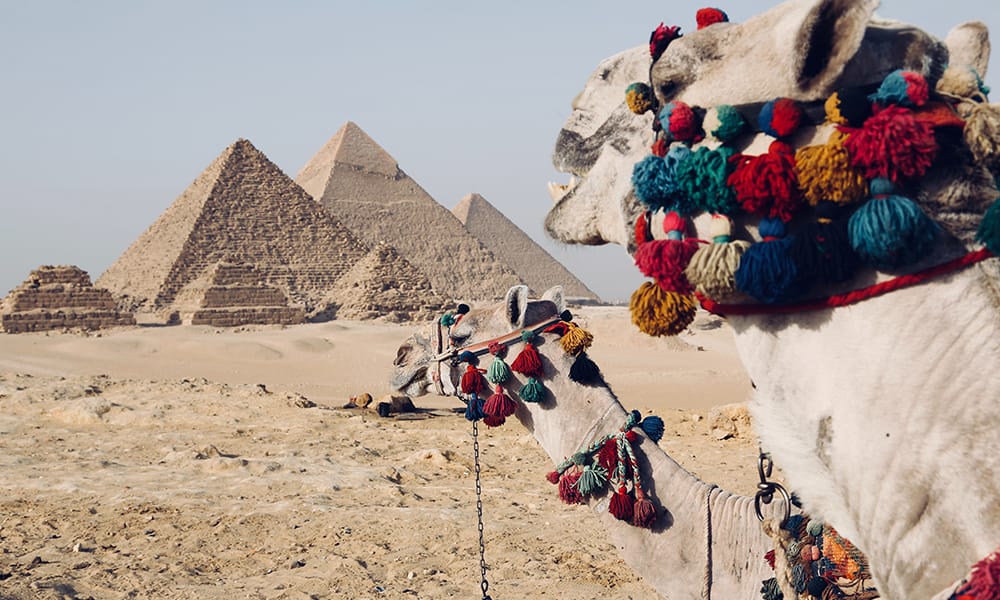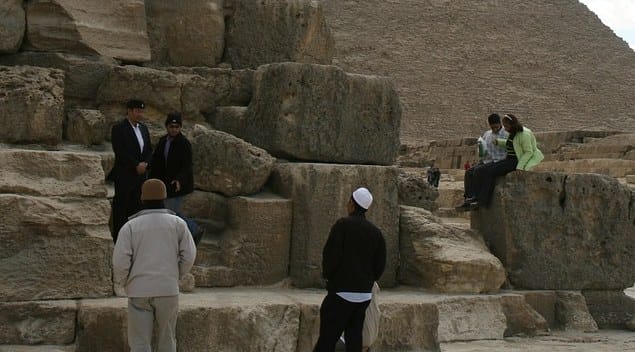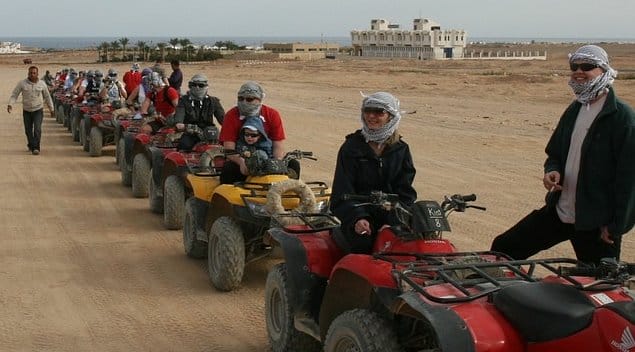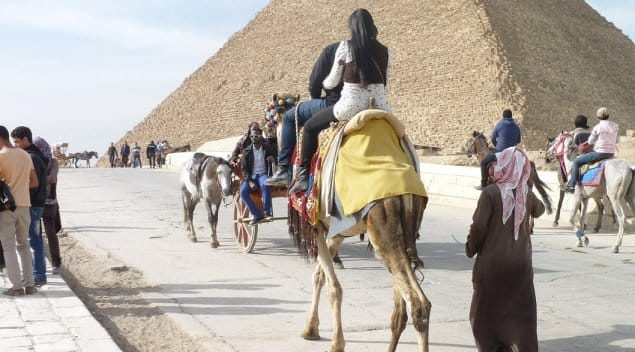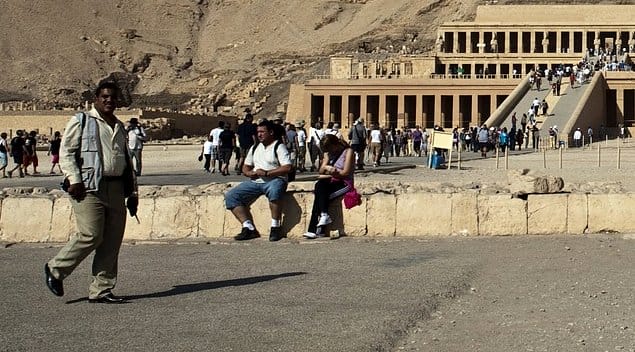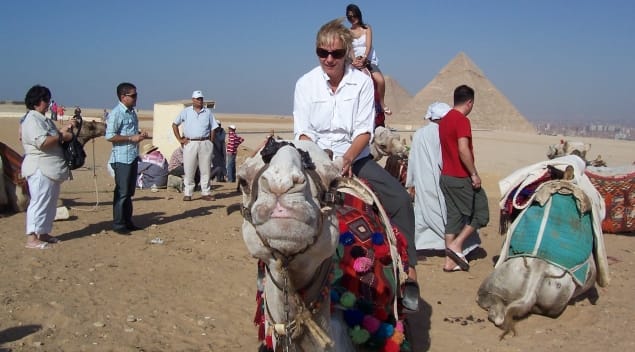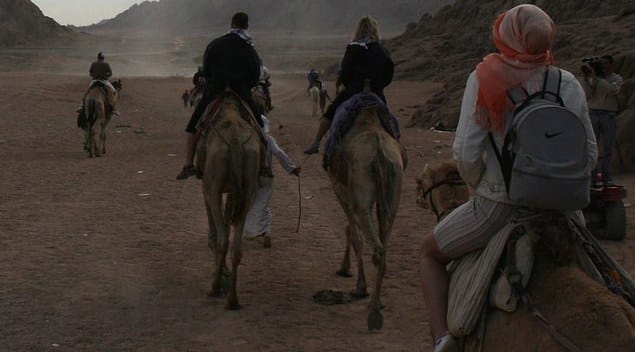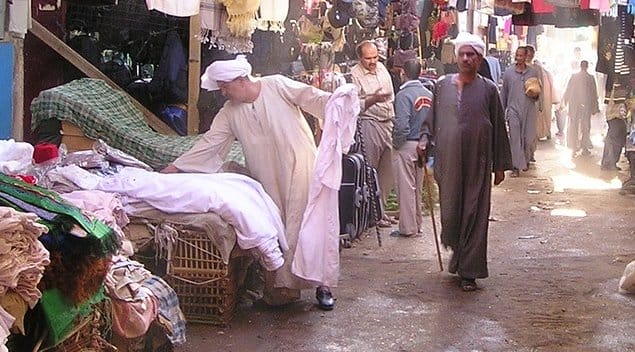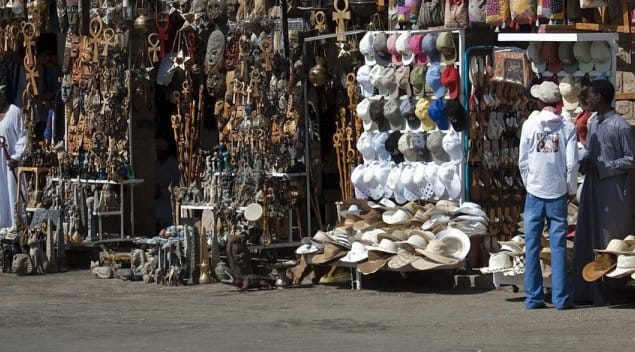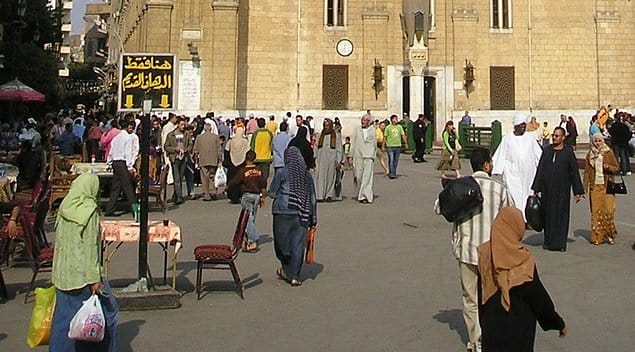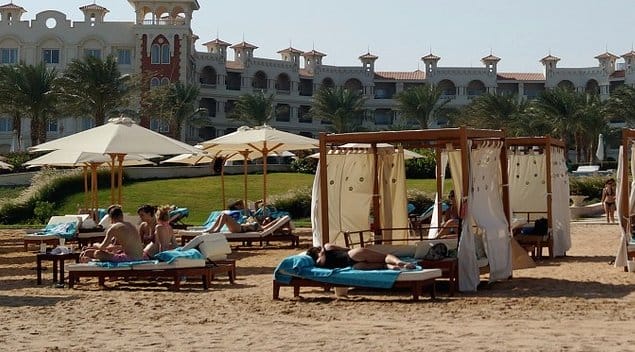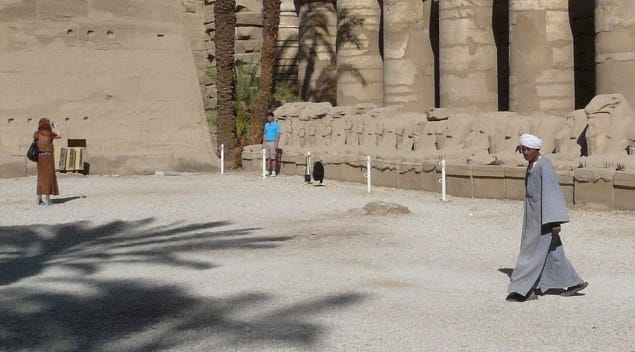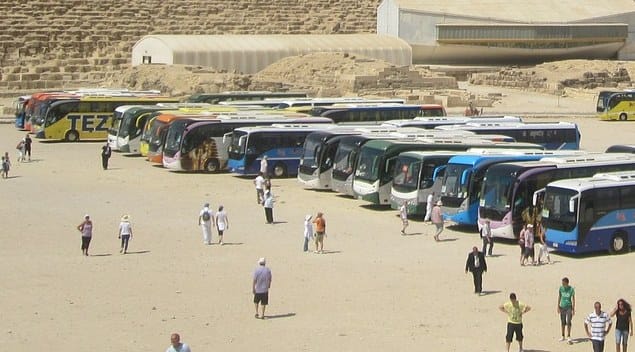Top Style Tips for Egypt
- What you wear will depend a little on whether you are staying solely in the tourist beach resorts, or exploring the wider country. However always remember it is a Muslim country so you should respect their conservative values at all times.
- Local people like to dress up in the evening, so if you're going out to dinner it's a great opportunity to dress with more care than usual.
- Also on cruise boats it's nice to have something smart to wear in the evening.
- It is a good idea to pack a lightweight travel jacket, particularly if traveling to Egypt in January, February, November or December, as the weather can cool down significantly during these months. We recommend the SCOTTeVEST travel jacket as it has excellent storage pockets, removable sleeves and the option of RFID security to protect against identity theft.
- It is inadvisable to wear army/combat type clothing or print.
- Wear plenty of sunscreen (we love the Riemann P20 range for 10 hour protection), sunglasses and a sunhat, and remember your insect/mosquito repellent.
Shoes to pack for Egypt
- Take comfy flat shoes for exploring, and the streets can be dusty so you may prefer closed-in styles. We love Hotter shoes for travel, they're very light and comfy and look great too.
Clothing tips for women
- Egypt is a Muslim country, and although its cities are modern and local women may wear make-up now, they always dress conservatively.
- Egyptians find it very inappropriate to reveal even the slightest amount of stomach or hips, so short tops, short skirts or shorts, or tight clothes should be avoided completely when away from tourist hotels.
- Cotton or other natural fibre long-sleeved shirts or t-shirts, worn with long trousers or ankle length skirts are a good choice, and keep your shoulders covered too. Keep clothing loose – it will keep you cooler and you'll get less unwanted attention.
- Although the dress code is more relaxed in hotels and tourist resorts like Sharm el Sheikh, you will find that you will get more respect if you dress modestly – a pashmina or wrap can be useful for times when you need to cover up.
- Keep your swimwear for the beach or pool only, and cover up with a kaftan or sarong when walking around the hotel. Definitely avoid topless sunbathing – the locals really do not like it.
- If you're going to visit any religious sites then use your pashmina or sarong to cover your shoulders, stomach and bare legs.
- And a pashmina will always add a bit of ‘glam' if you need it too.
Clothing tips for men
- If you're looking for versatile and stylish beachwear, try the Madda Fella range of shirts, shorts, polos and swimwear.
- But keep your shorts for the beach and resort areas. Elsewhere, long trousers and a shirt are best.
- Cotton or other natural fibre long-sleeved shirts or t-shirts will keep you cooler.
Pack for the weather
- In the summer it can be as hot as a furnace, so light, natural breathable fabrics are best.
- In the winter (roughly December, January and February) days can be chilly and sometimes cloudy. You may need a light pullover or pashmina during the day, and a warmer coat at night. Choose layers that can be taken off during the day and put back on for cooler evenings.
- We love the Weather+ app – it gives an accurate 6 day forecast for day and night, which when you're planning from home is really helpful. You can keep all the places you've been to too – a nice way to remember your trip 🙂 Download for iPad/iPhone or Android
Community photos of Egypt
Regions of Egypt
- In Cairo in December, January or February be prepared for some rain – pack a lightweight raincoat. The rest of the year is almost always entirely dry.
- At the Taba Heights resort a chill breeze quite frequently blows off the sea during the day throughout March. A light wrap, jumper or kaftan is useful for those times when you're not flat out on your sun bed.
- Also at Taba, if you're booked with a package tour operator you may be offered excursions to Petra in Jordan. In February this can be colder than you might expect… perhaps even with snow so be prepared.
Other things to pack
- Officially the tap water is safe to drink, however it is highly chlorinated so may not be what you are used to. Most visitors buy bottled water.
- If you're planning to travel around the country, a soft-sided rucksack is more practical than a hard suitcase – it's easier to fit into transfer vehicles. Using packing cubes can help to keep your belongings tidy whilst compressing the volume too.
- A lightweight day sack will be handy for sightseeing trips.
- To use electrical gadgets you may need a travel adapter plug, and also a step down voltage converter if your devices are not designed for the local voltage (220V).
- Avoid paying unexpected baggage fees – use an accurate luggage scale to ensure you keep within the weight allowance. Don't forget to leave room for souvenirs on the way home! Alabaster vases are popular in Luxor, gold jewellery is a good buy, and if you really want to do the touristy thing pick up a miniature pyramid or sand-filled camel!
- Egypt has a culture of tipping so we suggest you carry small denomination coins with you. It is difficult to get small notes outside of Egypt, so stop at the bank at the airport and ask for small bills. Tips in Euros or Dollars will be accepted and will smooth things along, but currencies are difficult to exchange for the locals and they would vastly prefer Egyptian Pounds.
